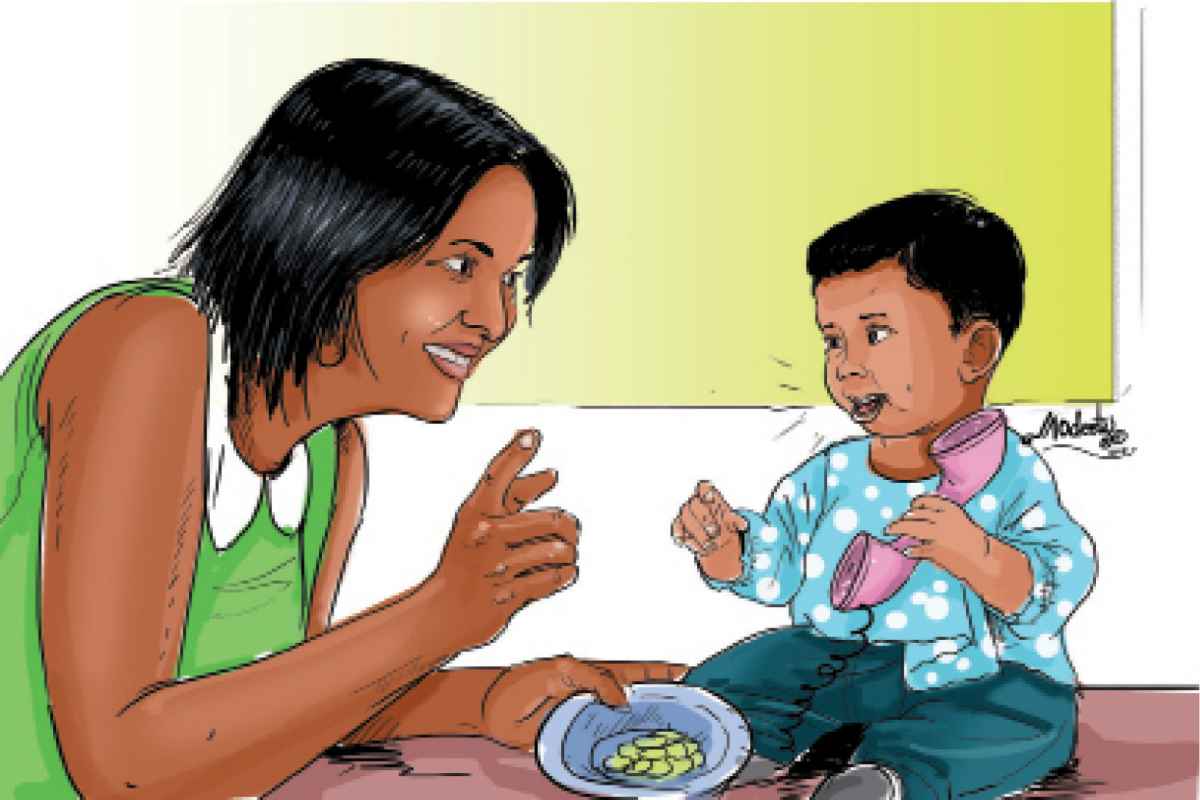Parents’ joy hearing their baby’s first word
The first words uttered by a baby have always been a cause for happiness for parents, especially the mothers, even to the point of tears of joy for some. The mother has a strong connection with her baby, an unbreakable bond. It therefore is an exciting time for parents when their baby shows progress in […]

The first words uttered by a baby have always been a cause for happiness for parents, especially the mothers, even to the point of tears of joy for some. The mother has a strong connection with her baby, an unbreakable bond. It therefore is an exciting time for parents when their baby shows progress in communicating.
The mother and baby enjoy two-way conversation as the mum feels the infants’ company amiable for her in the absence of her spouse. The child takes nearly 80 per cent of the mothers’ attention away from the family. The mother ensures that she supplies the child with everything it needs.
Oftentimes, a baby’s ability to utter words appears to drag interminably to the overanxious parents. The mother relentlessly speaks to her baby from the first day; from the moment the baby breathes the earthly air. She’s optimistic that sooner than later, the child would respond to her.
She will keep making series of sounds to the baby such as: ‘say papa’, ‘say mama’, ‘say baba, dada’ and so on. The baby, however, is only able to produce one word syllables such as ‘ma’, ‘da’ or pa’ which, all the same, make the mother overjoyed upon hearing them. Interestingly, given the choice, most mothers would love to hear the baby utter ‘mama’, rather than ‘papa’ as its first words, and vice versa with the dad, especially for those just starting a family.
Most likely, the child becomes comfortable with the bilabial lexicons (the letters b, m and p) as a result of less stress attached to them during pronunciation. Notwithstanding, some experts have debated which is easier, ‘mama’ or ‘dada’, for a baby to utter.
According to an American linguist, a cognitive scientist and a philosopher, Professor Emeritus, Noam Chomsky, “language is innate, or in other words, we are born with a capacity for language acquisition.”
Chomsky believed that “language is so complex, with an unlimited combination of sounds, words and phrases, that environmental learning is not able to account for language acquisition alone. Every child is born with the (LAD) Language Acquisition Device.”
Babbling is a stage in child development and a state in language acquisition during which an infant appears to be experimenting with uttering articulate sounds, but does not yet produce any recognizable words.
The experts say babbling involves reduplicated sounds. Soon those sounds will become real words; ‘mama’; ‘dada’; may slip out and bring tears to your eyes as early as six months. From then on, your baby will pick up more words from you and everyone else around him. And sometime between 18 months and two years, the child begins to form two- to four-word sentences.
It is worth noting that the more children are given the chance to play with speech and speech sounds, the more we are helping them to develop their speaking and communication skills.
A new research has suggested that babies began to absorb language when they are in the womb – during the last 10 weeks of pregnancy. So after birth, repetition will help them understand and later speak the words.
A child produces sounds at his own pleasure. The mother also helps the child in mastering a language. A mother is the first pedagogue an infant encounters before the environment.
So it is every mother’s nightmare to realize that her infant is deaf, thus, she’s always speaking to the child, hoping to hear the baby make a sound; meaningful or meaningless. That eases the tension the mother undergoes.
However if the child is getting close to two years and showing no signs of trying to speak, it is recommended that the parents talk to their doctor to get some advice.
